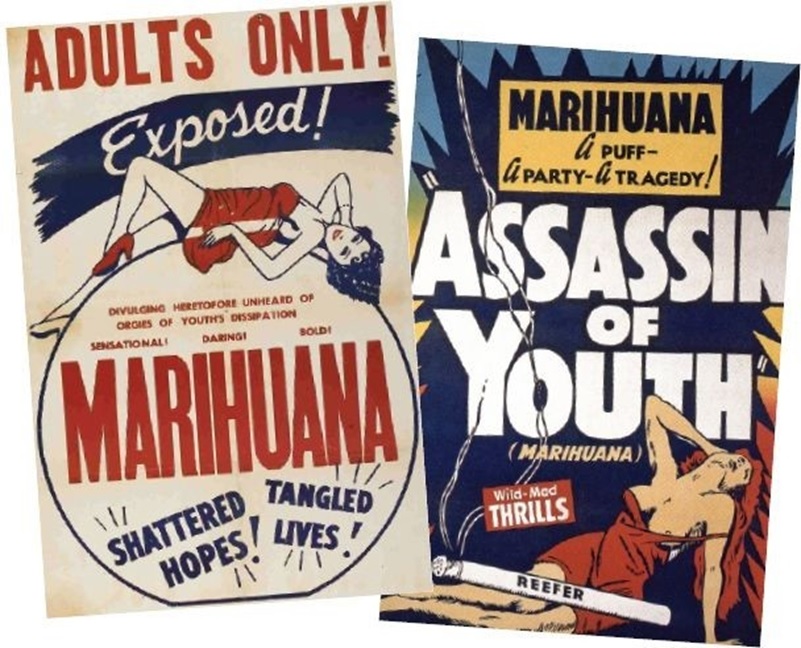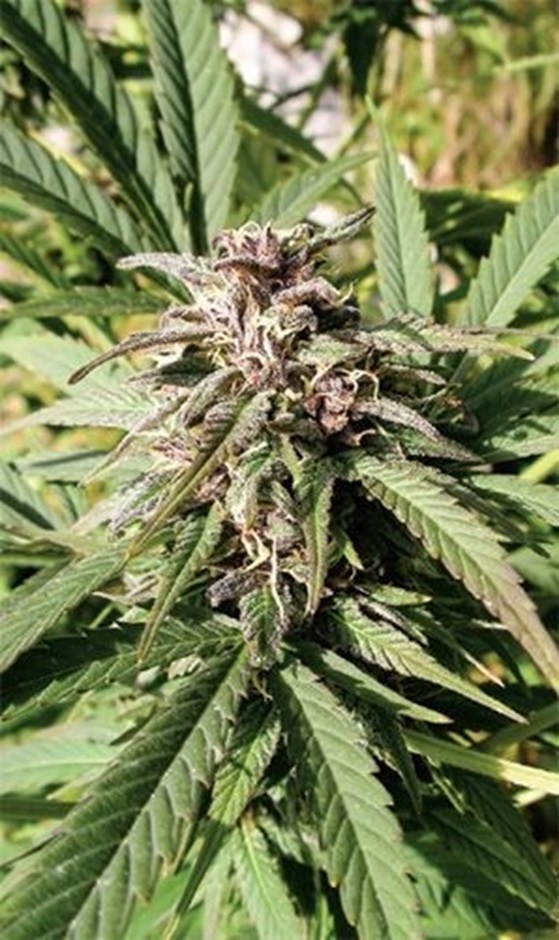Сonspiracy against cannabis and disinformation
A great deal of misinformation, unsupported by any reputable medical evidence, is quoted about cannabis use and mental health issues. Starting in the 1920s, the prohibition conspiracy began with newspaper headlines and fabricated stories detailing what they termed “Reefer Madness.” Today, the Partnership for a Drug-Free America has a budget of around one million dollars a day, with the majority of their funding being provided by pharmaceutical companies who pay substantial sums of money to lobbyists and special interest groups to aggressively campaign against any possibility of cannabis legalization. Cannabis does not cause mental health problems; there is no evidence to support this claim. If cannabis use caused mental illness, why would major pharmaceutical companies be marketing cannabinoid-based medications? Furthermore, if cannabis use caused schizophrenia there would be over 150,000,000 recreational users exhibiting an extraordinary range of symptoms worldwide. This is not the case. Professor David Nutt from the U.K. gave a lecture regarding cannabis and schizophrenia in 2009, referring to the idea that stronger cannabis (known as “Skunk”, but not about the strain of the same name) has made smoking cannabis more dangerous, and stated:
“Schizophrenia seems to be disappearing from the general population even though cannabis use has increased markedly in the last 30 years. When we were reviewing the general practice research database in the U.K. from the University of Keele, research consistently and clearly showed that psychosis and schizophrenia are still on the decline. So, even though Skunk [a high cannabinoid content cannabis strain] has been around now for 10 years, there has been no upswing in schizophrenia. Where people have looked, they haven’t found any evidence linking cannabis use in a population and schizophrenia.”

In 2012, a report authored by Leweke et al was published about psychosis and schizophrenia and in stark contrast to the official government assertions that cannabis causes schizophrenia, the study found instead that cannabidiol (CBD) enhances anandamide signaling and alleviates the psychotic symptoms of schizophrenia and that CBD was as effective as amisulpride, a standard antipsychotic.
When Dr. Lester Grinspoon was the Associate Professor Emeritus of Psychiatry at Harvard Medical School and senior psychiatrist at the Massachusetts Mental Health Center in Boston, he stated:
“If the brain produces its cannabinoid-like substances, it doesn’t make much sense that it would produce a substance which is going to damage the brain. Indeed, long before it was discovered that there are endogenous cannabinoids, the empirical evidence did not demonstrate that cannabis damaged the brain.”
False arguments against cannabis
Another spurious argument put forward by those wishing to keep cannabis illegal is the “gateway” theory. The prohibitionists like to imply that cannabis consumers will go on to become users of hard drugs such as heroin and cocaine. This discredited theory is unsupported by any medical evidence; in fact, researchers have reported that they have found that the gateway theory argument can be better applied to alcohol and tobacco, as these are the first drugs that most people experience. Cannabis has also been shown to be a useful medication in the treatment of alcoholism and drug addiction, and in medical trials, it has been shown to reduce the user’s cravings for cocaine. Research published in many peer-reviewed scientific journals indicates that the cannabis plant’s addictive potential is less than that of caffeine.
Another false idea against cannabis

The idea that cannabis is a gateway drug is so erroneous that modern scientific journals rarely bother to publish work on the issue. It is a scientific fact that the majority of people who try cannabis do not progress to experimentation with harder drugs and in most cases, they do not even go on to use cannabis regularly.
The third argument put forward to justify cannabis prohibition is even
more ridiculous, but steadfastly repeated by politicians and prohibitionists alike. When asked about the possibility of legalization, they will claim that cannabis strains are now much stronger than they were in the past, and therefore present a health risk. New strains may well have more cannabinoid content, although many would argue that Thai sticks and Afghani Indica strains were just as potent 20 years ago. Irrespective of this, cannabis is medically proven to be safe, regardless of its cannabinoid content. If the cannabis of today is more potent, then the only side effect is that users will become more stoned and more easily remedied by consuming less.
“Сannabis hyperemesis”
The only recorded side effect of any note is known as “cannabis hyperemesis” and, although non–life-threatening, it produces unpleasant and debilitating symptoms in a very small number of people. This rare and unusual syndrome is associated with chronic cannabis use and was recently reported in seven case reports of patients from Australia, with a further eight well-documented cases in the United States. It is estimated that there are approximately 750,000 people who regularly use cannabis in Australia and over 17,000,000 users in the U.S., so the occurrence is extremely uncommon. Cannabis hyperemesis is characterized by otherwise unexplained recurrent nausea and vomiting, compulsive bathing, abdominal pain, and excessive thirst. Ceasing cannabis use results in complete symptomatic recovery. Abstaining totally from cannabis for 30 days before restarting consumption is a remedy for most sufferers, though this condition could be very serious for cancer patients if it struck during a course of cannabis oil treatment.